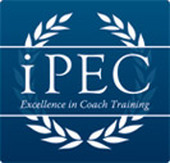
iPEC (Institute for Professional Excellence in Coaching) and it's founder, Bruce Schneider, has compiled years of research from various modes of integrative learning to create this amazing core coaching technique to enhance the lives of everyone that experiences it.
Core EnergyTM Coaching"Core EnergyTM Coaching is specifically designed to address the limitations of a more traditional coaching approach—by going far beyond just accountability or encouragement. As a Core Energy coach, you’ll actually have an opportunity to help your clients explore new goals, broaden their sense of what’s possible in their lives, and provide real tools that empower them to reach their full potential.
As their coach, you’ll take on the role of raising the deeper questions that a person might not otherwise ask themselves. You’ll challenge them to think bigger and start questioning the “story” they’ve told themselves and have begun to accept. With proper training, you can become skilled at presenting this kind of challenge constructively and with finesse.
By going beyond a traditional coaching approach, you can enable your clients to access an entirely new realm of possible results. That’s because you have been trained to help your clients become aware of their internal worlds—specifically, their driving motivations and self-limiting factors. As a result, you can lead them towards making permanent and profound shifts in the way they approach their problems, their goals, their world, and those around them. That means you’ll be able to have an impact on your clients that continues long after the coaching engagement ends.
Where ordinary coaching leaves off, Core Energy Coaching begins. This is where iPEC’s coach training stands apart from others. Our unique Core Energy Coaching approach is designed to help your clients achieve sustainable external results by making profound internal shifts. Coaches trained in this method say that it’s the key to making a real and satisfying difference in the world—and their clients agree!"
-Heather Doyle
Heather Doyle, CPC, ELI-MP, PCC Admissions Director
Telling versus insight"A premise of coaching is that people work things out for themselves. The difference between being told and having insight is all about creating new mental maps.
If you are thinking about something like how a new process will work or the reaction of your team to a new strategy you are creating a mental map. These new thoughts are energy-consuming from a brain perspective so you often do this when your brain is freed up from other activity like in the shower or on the walk to work. This type of thinking creates what we call an ‘aha moment’ or an insight.
This is literally new connections happening, a new map or part of a map is formed.
The additional issue with telling is that it is more likely to set up a threat response.
If you are told how to carry out the new process or what the strategy means for your job you still have to create that mental map. So coaching insight is more brain-savvy than telling an employee the answer. To take any kind of action people have to think it through for themselves. They can do this for themselves and immediately create the map when the coach/manager asks questions that create insight or they do it later after they have been told.
The additional issue with telling is that it is more likely to set up a threat response (see more in the CORE video) as the individual’s predictions and connections are different to what was expected. As we have observed before, this difference creates an error message and a sense of pain in the brain. This in turn moves people away from the new information and increases the likelihood of resistance.
Managers who tell rather than coach not only waste their own energy but they are potentially making it more difficult for employees to accept a new idea. Are your managers and coaches creating insight or giving advice?"
-Jamie Lawrence is editor of global online HR publication and community HRZone.com.
Benefits of Using a CoachProfessional coaching brings many wonderful benefits: fresh perspectives on personal challenges, enhanced decision-making skills, greater interpersonal effectiveness, and increased confidence. And, the list does not end there. Those who undertake coaching also can expect appreciable improvement in productivity, satisfaction with life and work, and the attainment of relevant goals.
Increased Productivity Professional coaching maximizes potential and, therefore, unlocks latent sources of productivity.
Positive People Building the self-confidence of employees to face challenges is critical in meeting organizational demands.
Return on Investment Coaching generates learning and clarity for forward action with a commitment to measurable outcomes.The vast majority of companies (86%) say they at least made their investment back.
Satisfied Clients Virtually all companies and individuals who hire a coach are satisfied.
More information on benefits of coaching can be found in the ICF Research Portal, including case studies and industry reports.
-Source: ICF Global Coaching Client Study was commissioned by the ICF but conducted independently by PricewaterhouseCoopers.
Core EnergyTM Coaching"Core EnergyTM Coaching is specifically designed to address the limitations of a more traditional coaching approach—by going far beyond just accountability or encouragement. As a Core Energy coach, you’ll actually have an opportunity to help your clients explore new goals, broaden their sense of what’s possible in their lives, and provide real tools that empower them to reach their full potential.
As their coach, you’ll take on the role of raising the deeper questions that a person might not otherwise ask themselves. You’ll challenge them to think bigger and start questioning the “story” they’ve told themselves and have begun to accept. With proper training, you can become skilled at presenting this kind of challenge constructively and with finesse.
By going beyond a traditional coaching approach, you can enable your clients to access an entirely new realm of possible results. That’s because you have been trained to help your clients become aware of their internal worlds—specifically, their driving motivations and self-limiting factors. As a result, you can lead them towards making permanent and profound shifts in the way they approach their problems, their goals, their world, and those around them. That means you’ll be able to have an impact on your clients that continues long after the coaching engagement ends.
Where ordinary coaching leaves off, Core Energy Coaching begins. This is where iPEC’s coach training stands apart from others. Our unique Core Energy Coaching approach is designed to help your clients achieve sustainable external results by making profound internal shifts. Coaches trained in this method say that it’s the key to making a real and satisfying difference in the world—and their clients agree!"
-Heather Doyle
Heather Doyle, CPC, ELI-MP, PCC Admissions Director
Telling versus insight"A premise of coaching is that people work things out for themselves. The difference between being told and having insight is all about creating new mental maps.
If you are thinking about something like how a new process will work or the reaction of your team to a new strategy you are creating a mental map. These new thoughts are energy-consuming from a brain perspective so you often do this when your brain is freed up from other activity like in the shower or on the walk to work. This type of thinking creates what we call an ‘aha moment’ or an insight.
This is literally new connections happening, a new map or part of a map is formed.
The additional issue with telling is that it is more likely to set up a threat response.
If you are told how to carry out the new process or what the strategy means for your job you still have to create that mental map. So coaching insight is more brain-savvy than telling an employee the answer. To take any kind of action people have to think it through for themselves. They can do this for themselves and immediately create the map when the coach/manager asks questions that create insight or they do it later after they have been told.
The additional issue with telling is that it is more likely to set up a threat response (see more in the CORE video) as the individual’s predictions and connections are different to what was expected. As we have observed before, this difference creates an error message and a sense of pain in the brain. This in turn moves people away from the new information and increases the likelihood of resistance.
Managers who tell rather than coach not only waste their own energy but they are potentially making it more difficult for employees to accept a new idea. Are your managers and coaches creating insight or giving advice?"
-Jamie Lawrence is editor of global online HR publication and community HRZone.com.
Benefits of Using a CoachProfessional coaching brings many wonderful benefits: fresh perspectives on personal challenges, enhanced decision-making skills, greater interpersonal effectiveness, and increased confidence. And, the list does not end there. Those who undertake coaching also can expect appreciable improvement in productivity, satisfaction with life and work, and the attainment of relevant goals.
Increased Productivity Professional coaching maximizes potential and, therefore, unlocks latent sources of productivity.
Positive People Building the self-confidence of employees to face challenges is critical in meeting organizational demands.
Return on Investment Coaching generates learning and clarity for forward action with a commitment to measurable outcomes.The vast majority of companies (86%) say they at least made their investment back.
Satisfied Clients Virtually all companies and individuals who hire a coach are satisfied.
More information on benefits of coaching can be found in the ICF Research Portal, including case studies and industry reports.
-Source: ICF Global Coaching Client Study was commissioned by the ICF but conducted independently by PricewaterhouseCoopers.


